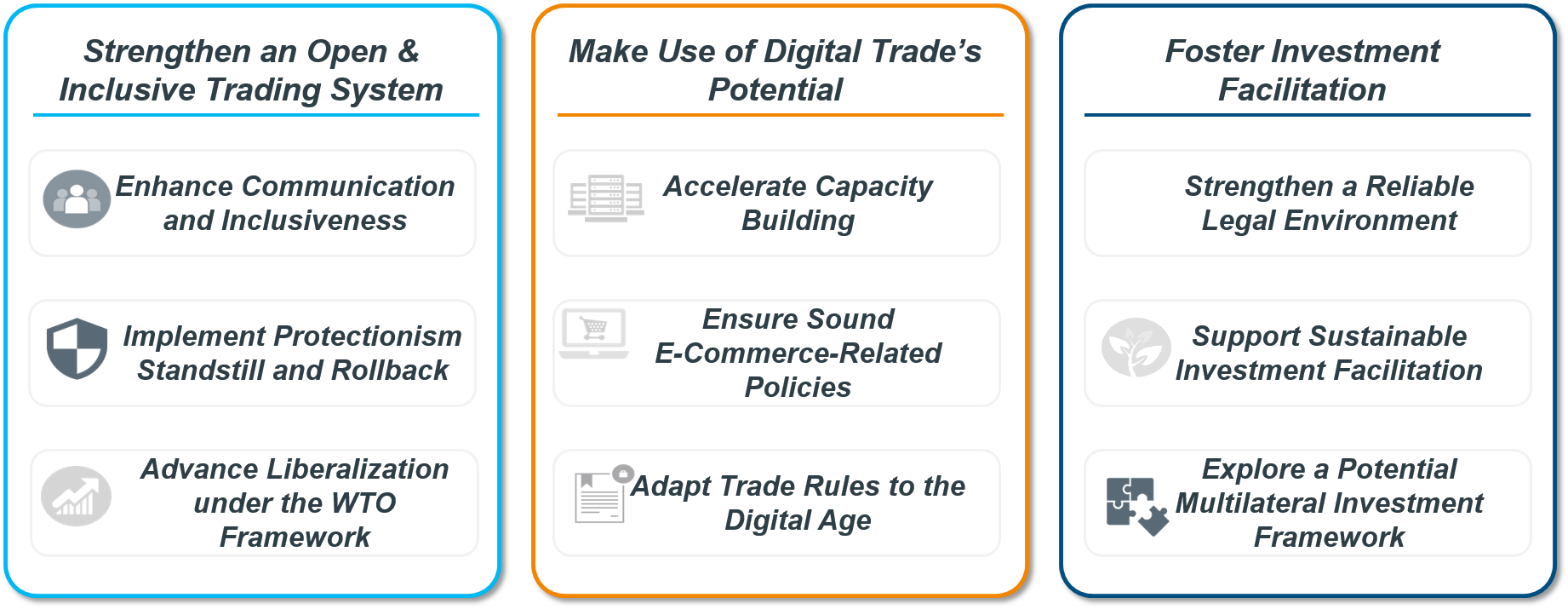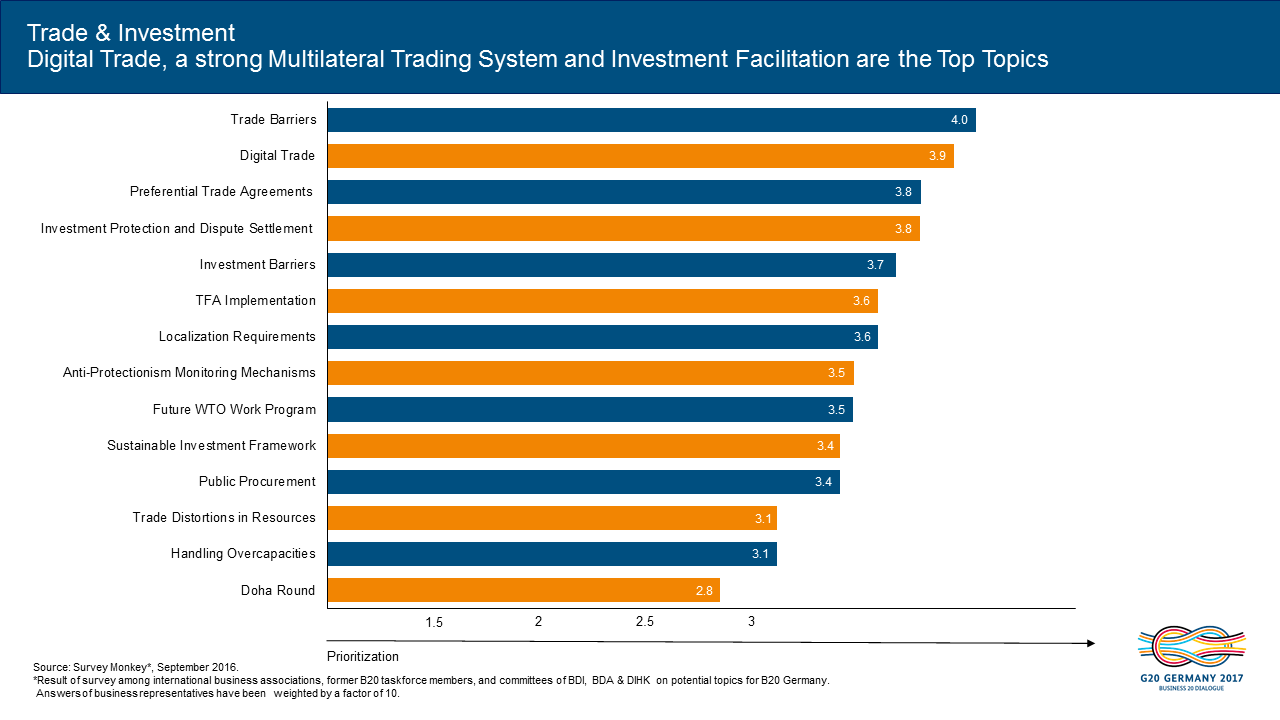Trade & Investment
Prosperity is the result of exchange – of ideas, goods, services, and finance. The advantages of trade and investment are manifold: People can learn from each other – in business, but also far beyond. New markets can be explored and customers can be won abroad. Production becomes more efficient through specialization and economies of scale. And the opening of markets strengthens competition. All these aspects increase the choice of diverse and high quality goods and services, and decrease their prices for the consumers.
However, globalization is accompanied by major challenges. We cannot ignore that despite the overall benefits of trade and investment flows, anti-globalization sentiments have been growing and arising. An increasing number of people feel that they are on the losing end of greater competition. More and more people find it hard to adapt to a rapidly changing world. Business and governments must work together to deal with these concerns.
Our trading system and trade rules need to sufficiently reflect the changing nature of trade in the 21th century. We need to address the growing opposition to globalization in our societies. We need to fully integrate those countries into the world economy, which have not yet fully benefitted from globalization. We need to cur-tail protectionism and work towards a further trade liberalization. We need to facilitate digital trade across the globe in terms of capacities, policies and rules. We need to improve investment policymaking and market access. We know of our responsibility. Business is ready to play its part.
B20 Focal Areas
Inclusive Trade needs to be strengthened as growing parts of the population are voicing strong opposition to trade liberalization and international investment. Benefits of trade need to be communicated much clearer and much more support has to be provided to citizens during times of change and disruption. Protectionist measures of G20 states have to be addressed and rolled back. And, all opportunities within the WTO framework that foster multilateral trade liberalization should be explored.
Digital Trade offers diverse advantages: it reduces transaction costs and facilitates trade participation for SMEs and developing countries. Yet, in order to make full use of these opportunities globally, capacity-building needs to be supported. In addition, interoperable and non-discriminatory e-commerce related policies need to be established. And we also want to work towards an adaption of rules for digital trade on a global level to avoid digital protectionism and legal insecurity.
Investment Facilitation is needed as Foreign Direct Investment (FDI) still faces barriers and disincentives. B20 wants to work against discrimination and unfair treatment and wishes to improve the protection of property rights and contract enforcements. We want to endorse common best practices for sustainable investment facilitation and want to initiate a process on a multilateral investment framework.


